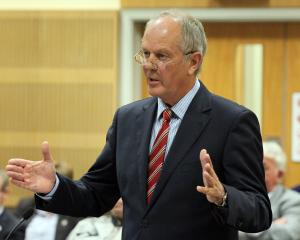
It cut the official cash rate (OCR) by 25 basis points to 5.25%.
What a change from May when the bank said the chance of an OCR rise being needed in August was 60% and that it might not start cutting the rate until the second half of next year.
How quickly things can change. How wrong many of the bank’s predictions are.
It kept interest rates too low and for too long after Covid. Might it also have maintained interest rates too high for too long this year?
Or has it been premature by reducing the rate and signalling another possible cut this year?
Is inflation really tamed as the bank now predicts? After all, local government property rates and insurance are soaring.

The rate-cut announcement caused, as expected, a fall in the New Zealand dollar. That, in itself, will prompt a small increase in inflation because the cost of goods from overseas, including petrol, rises.
At the same time, returns to exporters increase, boosting incomes and potentially economic activity.
Questions emerge about potential house price rises after many months of lethargy and slow declines.
Or will job uncertainty, falling net migration and continued high mortgage rates subdue any spring flush?
This is a critical and uncertain juncture.
While a recession and rising unemployment have been part of the medicine to reduce inflation, questions and doubts remain about the timing of cuts, as well as how much deep damage has been wrought on business and individuals in the meantime.
Reserve Bank governor Adrian Orr made his awaited pronouncements this week about the first OCR drop since March 2020, like some latter-day Moses speaking from on high.
Mortgage rates were immediately trimmed. Deposit returns fell as well.
There is always a lot of interest in interest rates for very good reasons.
Unfortunately, faith in Mr Orr and the bank and their prognostications are somewhat shaken, given their record.
Granted, they are handicapped by lags in inflation data and long delays as mortgage borrowers come off fixed interest rates. Applying the financial squeeze to them through higher rates can take years.
Overseas influences are sometimes unpredictable, and the economic ship of state has many moving sails amid variable wind strengths from different directions.
New Zealand spent its way through the business threats of Covid, and was too slow to turn down the tap in the aftermath.
New Zealand, like much of the world, reaped the consequences from inflation and increased national debt.
This, in effect, has caused a drop in living standards for everyone unable to secure commensurate wage or salary increases.
The Reserve Bank uses the OCR to try to force inflation into the 1% to 3% range. Higher mortgage rates mean less disposable income and less spending.
The rates also choke businesses through the high cost of debt. Job losses or the threat thereof encourages consumers to "cool their jets" (as Mr Orr asked people to do last November), spending less and curbing risks.
The bank is predicting the economy will have shrunk across the year by 0.6%. In May, it expected 1% growth.
"It’s the darkest right now ... It’s darkest before dawn and it’s dawn now according to our projections," Mr Orr said.
His diagnosis and projections work well for the government.
An economy coming right next year would fit its narrative, even if it claims more credit than it deserves for creating conditions where OCR cuts occur.
But how much confidence can we have in Mr Orr’s "projections"?
Despite the bank’s track record and the difficulties in economic forecasting, we must hope he has them more or less right.
An overshoot and more inflation or an undershoot and unnecessary unemployment and financial stress are both seriously damaging outcomes.











